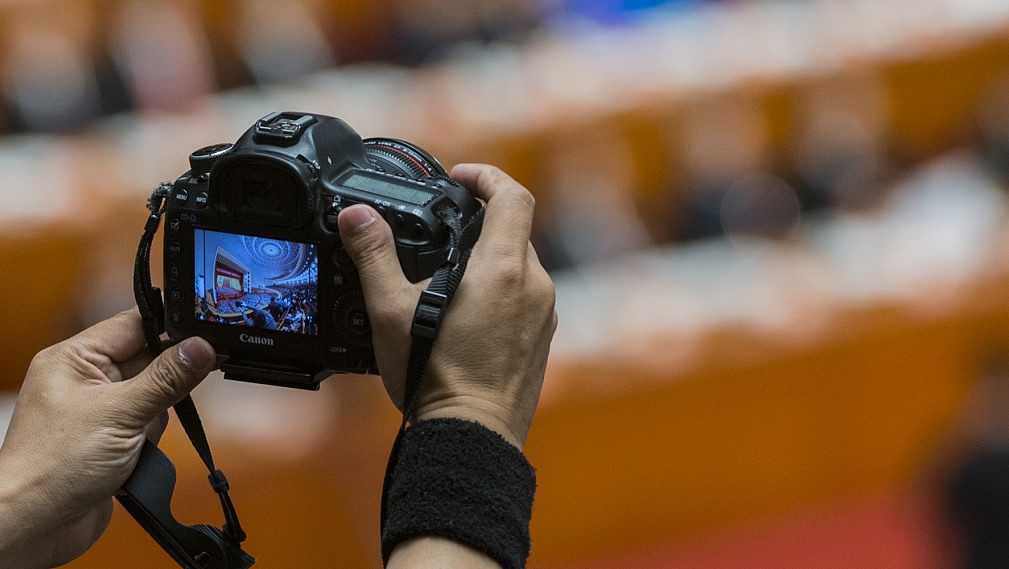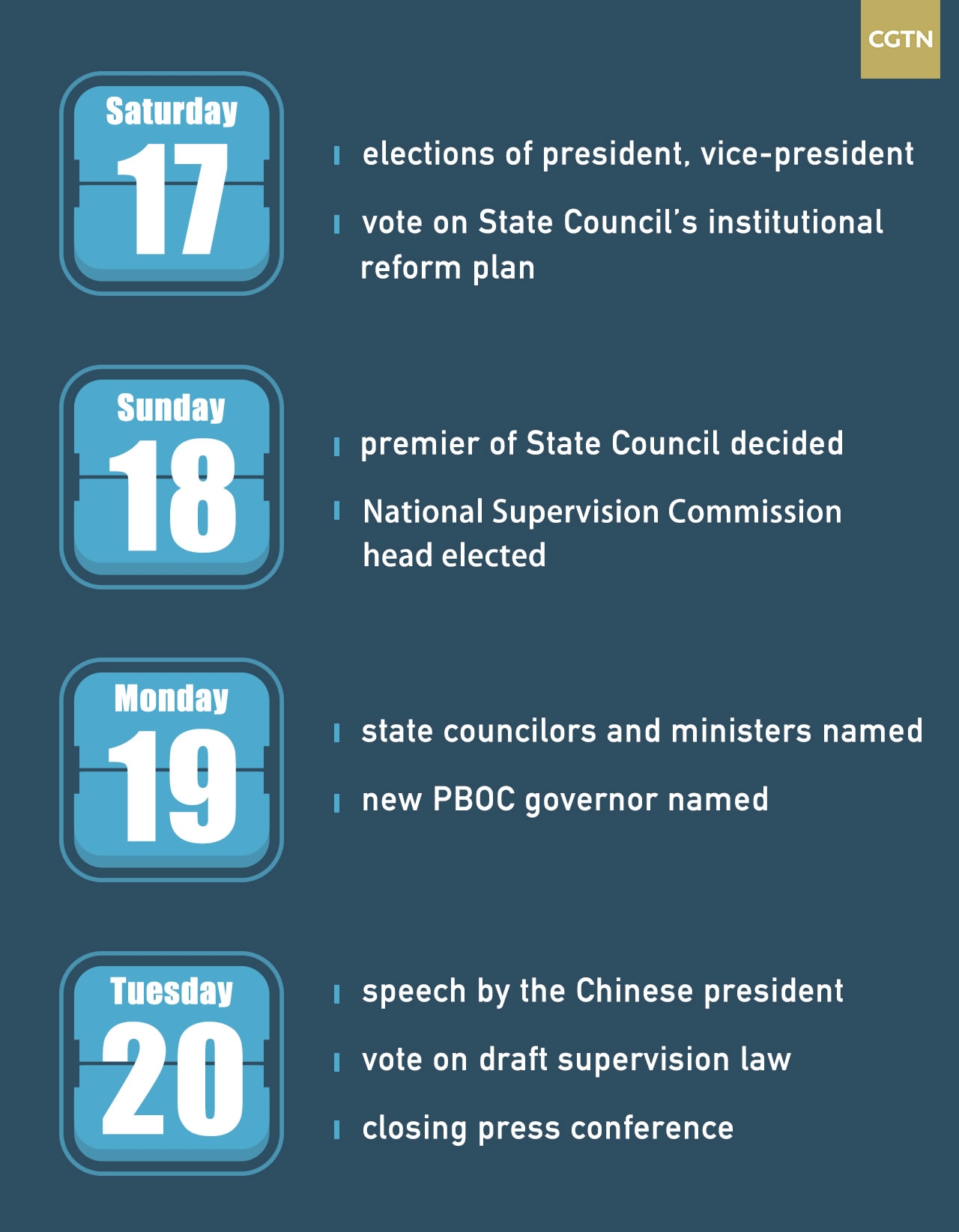
Politics
15:05, 16-Mar-2018
Two Sessions 2018: What to watch over the final four days
By John Goodrich

China enters the final stages of its annual political season on Saturday, with four days of votes to be cast and critical decisions to be made at the National People’s Congress (NPC).
The choices made at the first session of the 13th NPC will determine key state leadership positions for the next five years, as well as the establishment of a National Supervision Commission and the implementation of the State Council’s far-reaching institutional reform plan.

Here’s what to expect over the final four days of Two Sessions 2018:
Saturday, March 17
Fifth plenary meeting
– Headlines: Elections of president, vice-president, CMC chairman, top NPC posts; vote on State Council’s institutional reform plan.
– Why it matters: All eyes will be on the election of China’s new president and vice president. China's current president Xi Jinping was elected to the post at the first session of the 12th NPC five years ago. The State Council’s institutional reform plan will result in a far-reaching overhaul of the government, if passed by the NPC, streamlining the decision-making process with the intent of getting policies implemented more quickly, more effectively. The Ministry of Environmental Protection – which is scheduled to hold a press conference in the afternoon -- will be swallowed by a new Ministry of Ecological Environment under the plan.
– Also happening: Ministry of Environmental Protection press conference; vote on measures for elections and appointment; NPC delegations discuss endorsement of premier and other key posts.
Sunday, March 18
Sixth plenary meeting
– Headlines: Premier of State Council decided; head of newly-established National Supervision Commission elected; NPC standing committee elected.
– Why it matters: The premier of the State Council is nominated by the president, whose choice goes before the NPC for endorsement. The premier will oversee the 26 ministries that will be created if the State Council’s sweeping reform plan is approved.
– Also happening: NPC delegations discuss vice premier of State Council, state councilors, ministers, and membership of 13th NPC special committees.
Monday, March 19
Seventh plenary meeting
– Headlines: High-ranking members of the State Council and ministers appointed; PBOC governor named; election of director of the National Audit Committee; vote on members of 13th NPC special committees.
– Why it matters: Vice-premier, state councilors and ministers are among the highest ranking positions within the Chinese government. The choices for these roles will be closely watched for clues as to China’s approach in individual policy areas over the next five years. The choice of People’s Bank of China governor will also be of interest -- incumbent Zhou Xiaochuan has held the role since 2002.
– Also happening: NPC delegations deliberate draft resolutions on work reports, budgets and a voting version of draft supervision law.
Tuesday, March 20
Eighth plenary meeting
– Headlines: President’s speech; votes on draft supervision law, work reports, budgets; concluding press conference.
– Why it matters: The president’s speech, one of the most high profile events of the Two Sessions, will likely sum up the progress made during the first session of the 13th NPC and look forward to the next five years. The supervisory law, if passed, will create a new supervision network headed by a national body – the National Supervision Commission – a strengthening of the campaign against corruption. Votes on work reports, including the government work report, will be closely watched. The Two Sessions will come to an end with a press conference overseen by the premier.
– Also happening: Speech by the new chairman of NPC standing committee.

SITEMAP
Copyright © 2018 CGTN. Beijing ICP prepared NO.16065310-3
Copyright © 2018 CGTN. Beijing ICP prepared NO.16065310-3